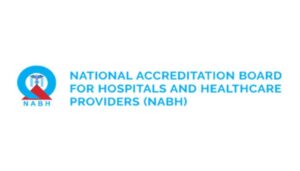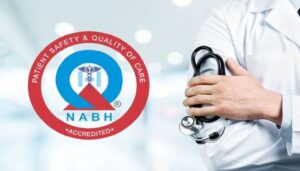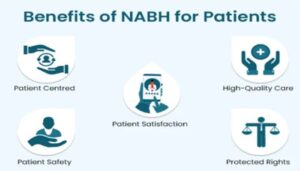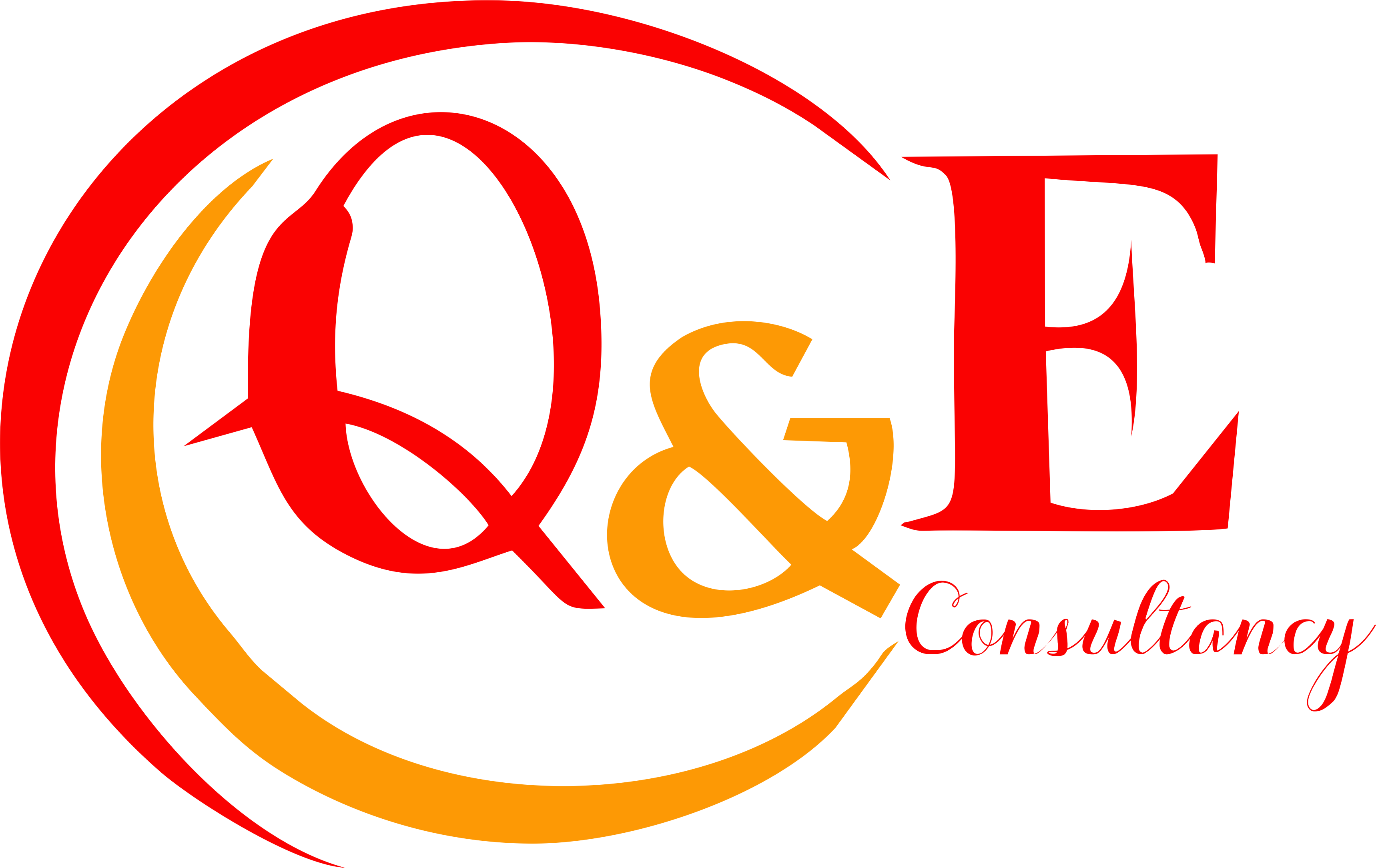In the rapidly evolving world of healthcare, ensuring quality and patient safety has become increasingly essential. For hospitals looking to elevate their standards, NABH certification stands out as a symbol of excellence and trustworthiness. As patients and regulatory bodies become increasingly aware, obtaining accreditation from the National Accreditation Board for Hospitals & Healthcare Providers (NABH) is no longer just a nice-to-have—it’s a must.
Whether you’re a hospital administrator focused on improving care quality or a patient seeking the best healthcare experience, understanding the concept of NABH and its benefits is crucial. This article explores the importance of NABH entry-level accreditation, its effects on both patients and providers, and how organisations like Q&E Consultancy Services are key players in helping achieve it.

What is NABH?
The National Accreditation Board for Hospitals & Healthcare Providers (NABH) is a part of the Quality Council of India (QCI), created to establish benchmarks for delivering quality healthcare in India. NABH’s mission is to ensure that hospitals and healthcare providers uphold high standards in patient safety, infection control, infrastructure, documentation, and overall medical ethics.
Hospitals receive NABH accreditation after a thorough evaluation of their systems and processes. This assessment looks at everything from clinical protocols to how they gather patient feedback, ensuring a comprehensive approach to healthcare delivery.
Understanding NABH Entry Level Accreditation
NABH offers several levels of accreditation, starting from NABH entry-level accreditation to full accreditation. The entry-level accreditation is tailored for small and mid-sized hospitals and nursing homes that are just beginning their journey toward quality enhancement.
This level enables healthcare institutions to implement basic quality standards and gradually work their way up to full NABH accreditation. Entry-level accreditation is more accessible and serves as a stepping stone for hospitals eager to show their dedication to providing quality healthcare.
Why Hospitals Need NABH Certification
-
Standardized Processes
NABH certification introduces a systematic approach to how hospitals operate. It requires these institutions to document every single procedure, which helps clear up any confusion and boosts accountability.
-
Enhanced Patient Safety
A key aim of NABH is to enhance patient safety. Whether it’s about infection control or surgical practices, the guidelines are designed to minimise risks and elevate the quality of care provided.
-
Legal and Regulatory Compliance
These days, many state governments and insurance companies require NABH accreditation for hospitals to be part of their networks. Being accredited means hospitals are meeting all necessary legal and regulatory standards.
-
Increased Credibility and Trust
For patients, spotting a NABH-certified hospital logo can really boost their confidence. It indicates that the hospital adheres to both national and international best practices in healthcare.
-
Eligibility for Insurance Panels
Hospitals that hold NABH certification often find it easier to get on the lists of government and private insurance providers, which expands their service options and enhances their financial health.
Accreditation as a Catalyst for Digital Transformation in Healthcare
In today’s healthcare landscape, digital tools and technologies are revolutionising the way we improve patient outcomes and streamline operations. The NABH certification for hospitals, especially at the entry level, serves as a powerful catalyst for embracing this digital transformation. To comply with NABH standards, hospitals are encouraged to implement electronic health records (EHRs), digital inventory management systems, automated appointment scheduling, and online patient feedback tools. These systems are essential for ensuring accuracy, accountability, and transparency—key principles of the NABH framework.
For example, digital documentation minimises the chances of manual errors and allows for real-time access to patient records across various departments. This not only boosts coordination among clinical teams but also speeds up response times during emergencies. Likewise, digitised quality indicators and audit trails enhance internal monitoring and make compliance reporting more efficient and less likely to be overlooked. Additionally, telemedicine platforms, patient portals, and mobile apps that align with NABH standards significantly improve patient engagement by enabling them to access reports, schedule appointments, and receive follow-up care from the comfort of their homes.

By aligning their accreditation goals with digital innovation, hospitals can future-proof their operations and enhance care delivery. For smaller and mid-sized facilities aiming for NABH entry-level accreditation, even the most basic digital tools can greatly enhance their readiness and simplify the accreditation process. Q & E Consultancy Services is here to help hospitals integrate digital best practices into their NABH compliance plans, ensuring they not only meet current standards but are also prepared for the healthcare challenges of tomorrow.
Key Benefits of NABH Certification for Patients
At the end of the day, patients are the ones who truly benefit from any healthcare quality initiative. Here’s how NABH certification for hospitals translates into real advantages for them:

-
Safer Environment
Accredited hospitals stick to strict infection control measures, conduct regular hygiene checks, and run emergency preparedness drills. This creates a safe and clean environment for both patients and visitors.
-
Improved Quality of Care
From the moment of diagnosis to discharge, NABH-certified hospitals adhere to standardised procedures, resulting in better clinical outcomes and fewer complications.
-
Transparency and Ethical Practices
Hospitals with NABH certification commit to ethical billing and informed consent practices, ensuring that patients are well-informed and not caught off guard by hidden fees or unnecessary treatments.
-
Patient-Centric Services
The NABH guidelines really focus on treating patients with respect and dignity, making sure they’re involved in the decision-making process. They also enhance feedback systems, giving patients a platform to share their experiences and help shape service improvements.
Key Benefits of NABH Certification for Hospitals
-
Operational Efficiency
By adopting NABH standards, hospitals are pushed to streamline their workflows, cut down on waste, and manage their resources more effectively. This boost in operational efficiency not only saves costs but also enhances the quality of service delivery.
-
Staff Training and Development
NABH standards place a strong emphasis on ongoing education and training for staff. This commitment not only lifts staff morale and performance but also helps minimise errors in patient care.
-
Better Infrastructure Utilisation
Accreditation motivates hospitals to keep their infrastructure in top shape, from emergency exits to medical equipment, ensuring that assets are used efficiently and breakdowns are kept to a minimum.
-
Data-Driven Decision Making
Hospitals that are NABH-certified are required to keep detailed records and audit trails. This data becomes a crucial resource for hospital management, enabling them to make informed decisions regarding services, staffing, and investments.
Challenges in Achieving NABH Entry Level Accreditation
Despite the many benefits, the journey to NABH accreditation can be challenging. Some common obstacles include: –
- Lack of Awareness: Many smaller hospitals don’t fully understand what entry-level accreditation involves.
- Resource Constraints: Limited funding and manpower can complicate the documentation and implementation processes.
- Resistance to Change: Shifting the mindset of staff and management to embrace standardisation can be quite a hurdle.
How Q&E Consultancy Services Can Help
Getting NABH entry-level accreditation requires careful planning, thorough documentation, and consistent implementation. Q&E Consultancy Services specialises in guiding hospitals through each step of this journey. Services Offered by Q&E Consultancy:
-
Gap Assessment
At Q&E, our consultants kick things off with a thorough evaluation of the hospital’s current practices in relation to NABH standards. This process helps pinpoint gaps and highlights areas that need immediate attention.
-
Training and Capacity Building
We believe in empowering hospital staff at all levels, from housekeeping to senior management, through our comprehensive training programs. Our goal is to ensure that everyone is on the same page when it comes to delivering quality care.
-
Documentation Support
Navigating the documentation required for NABH accreditation can be daunting. That’s where Q&E steps in, assisting hospitals in preparing the necessary SOPs, policies, and checklists to meet compliance standards.
-
Mock Audits and Pre-Assessments
To get ready for the official audit, Q&E conducts internal assessments that help ensure the hospital is fully prepared. This proactive approach significantly reduces the chances of non-conformities during the actual accreditation process.
-
Post-Accreditation Support
Achieving accreditation is just the beginning. Q&E is here to provide ongoing support to help maintain standards and prepare for renewal or even progression to full NABH accreditation.
With a team of experienced healthcare professionals and a proven track record of successful implementations, Q&E Consultancy is a reliable partner for hospitals looking to enhance their care standards.
The Road Ahead: NABH as a Catalyst for Healthcare Excellence
Pursuing NABH certification is more than just ticking a box; it’s a pledge to excellence. As awareness grows, patients become more empowered, and digital transformation reshapes healthcare, the demand for standardised practices has never been more critical. NABH entry-level accreditation presents a practical and impactful opportunity for small and mid-sized hospitals to start this journey. It lays a solid foundation that can be built upon over time, fostering a culture of continuous improvement.
Hospitals that embrace accreditation not only elevate their services but also gain a competitive advantage in a healthcare market that increasingly prioritises quality. For patients, this means experiencing healthcare that is not only safer and more reliable but also grounded in ethical practices.
Final Thoughts
If you’re a patient in search of dependable care or a healthcare provider striving for operational excellence, NABH certification stands out as the gold standard. It effectively connects clinical expertise with organisational efficiency, creating a healthcare environment that prioritises safety, transparency, and patient satisfaction.
Q&E Consultancy Services offers invaluable expertise on this journey, guiding hospitals through the intricate accreditation process with clarity and confidence. From conducting gap assessments to final audits, their all-encompassing support ensures that hospitals don’t just meet the standards—they truly embody them.
To kickstart your hospital’s journey toward NABH entry-level accreditation, head over to Q&E Consultancy’s official NABH services page and take that crucial first step toward achieving quality excellence.
